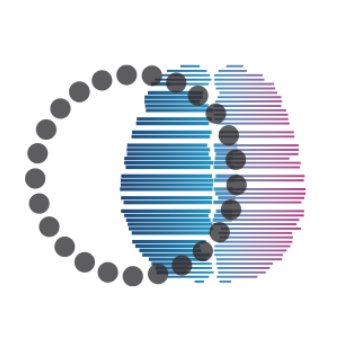
Kenneth D Harris
@kennethd_harris
Followers
6K
Following
2K
Media
47
Statuses
732
Neuroscientist at University College London
London, England
Joined April 2016
Want to collaborate with the International Brain Laboratory on your own project? We have funding to work with groups anywhere in the world to do new large-scale projects and we are looking for new partners! Learn more and apply: https://t.co/sqKLQyuAzq
1
9
17
Two flagship papers from the International Brain Laboratory, now out in @Nature: 🧠 Brain-wide map of neural activity during complex behaviour → https://t.co/cVmZNqBlzZ 🧠 Brain-wide representations of prior information in mouse decision-making → https://t.co/Pd4bZQcECd +
4
125
351
A new study led by @timothy_sit shows that different layers of mouse V1 integrate visual and non-visual signals differently. L2/3 activity is dominated by vision (or spontaneous fluctuations) and L5 by movement. This leads to different geometries. https://t.co/aup77pQZGp
biorxiv.org
The columnar hypothesis holds that neurons in a single cortical column process similar types of information. Here we show, however, that the way mouse primary visual cortex integrates visual and...
0
14
55
🚨Open letter calling upon the UK government to implement the Freedom of Speech Act in full🚨 If you are a UK-based academic, student or free speech campaigner, please consider signing the letter below https://t.co/sNxUfw81xf
@AFAF_freespeech @ComAcFreedom @AFFSUK @SpeechUnion
docs.google.com
Dear Secretary of State, We write as academics, students and campaigners for free speech to call upon the government to commence the remaining provisions of the Higher Education (Freedom of Speech)...
4
84
192
[1/5] Our paper “Tracking neurons across days with high-density probes” is now out in @naturemethods! https://t.co/ckPP6Bb9QR UnitMatch is a software for chronic electrophysiology that will automatically track neurons for months!
4
68
327
The 2024 UCL Neuropixels course will take place on 14-16 October. Registration is free. Register today! More info:
ucl.ac.uk
A free online course on Neuropixels, 14-16 October 2024
2
35
85
10. So in this task, MOs encodes a perseverative decision variable, and is required for the updating of this variable and its effect on choices and reaction time. mPFC is more involved in reward-based learning.
0
0
4
9. Optogenetic suppression of MOs during the choice period reduced perseverative behavior and perseverative learning, and increased reaction times. In contrast, suppressing mPFC following reward delivery slowed reward-based learning.
1
0
7
8. Statistical methods robust to nonsense correlations showed that while mice waited for the cue, the perseveration variable was encoded specifically in MOs; the reward-seeking variable was encoded nowhere. Once movements started, both variables were encoded in many regions.
1
0
0
7. Statistical analysis of this kind of data is hard: applying standard tests can lead to “nonsense correlations” because of slow drifts in behavior sequences and neural recordings. https://t.co/Oh0oWZjcfu
1. In neuroscience we often analyze variables that change slowly over time, for which standard statistical methods can give bogus results. I explored ten methods to deal with this problem and wrote up the results in a preprint.
1
0
0
6. But these neurons didn’t just encode the upcoming choice. They fired more after long sequences of the same choice, correlating with the perseveration variable of a cognitive models fit to their behavior. They also predicted rapid reaction times.
1
0
0
5. Neuropixels recordings across the frontal cortex showed correlates of upcoming choices when waiting for the go cue, almost exclusively in dorsal prefrontal cortex (area MOs).
1
0
0
4. We trained mice to perform a dynamic reversal learning task. Their behavior could be fit well by cognitive models, but only models including perseveration. Mice responded faster when perseverating, but got less reward than if they had made optimal choices.
1
0
0
3. By that definition, all humans and all animals are insane. Because we perseverate: we repeat actions even if not rewarded. The neural basis of perseveration has seen little attention, especially compared to reward-based learning.
1
0
1
2. “Insanity is doing the same thing over and over again and expecting different results.” Sometimes attributed to Einstein, this quote seems to be first from a visitor to Al-Anon, Knoxville TN, in 1981. https://t.co/SdGZzp7eL7
1
0
1
1. New preprint on the neural basis of perseverative behavior. With @neurvanna, Yeqing Wang, Laura Funnell, Bex Terry, @JinOh555, and @kevinjmiller10. https://t.co/sT1a7P5RQk
biorxiv.org
Perseveration – repeating one choice when others would generate larger rewards – is a common behavior, but neither its purpose nor neuronal mechanisms are understood. Here we demonstrate a neural...
3
13
71
Young scientists regularly ask me for career advice. Academia or industry? Big company or startup? US or Europe? Good scientists in AI disciplines are fortunate to have many choices. But choosing can be stressful. I always give the same advice. 1/10
20
241
1K
Are you interested in how neuronal populations integrate external and internal signals to drive behavior? Join our lab as a postdoc! We are looking for people with diverse skills, from computational to experimental.For more information, see https://t.co/vslK9e8cta.
0
33
87
Exciting preprint of @jasmanley et al. (Alipasha Vaziri's lab) extending the findings of @computingnature, @marius10p et al. (Science/Nature 2019) from 10,000 to 1 million cortical neurons.
Simultaneous, cortex-wide and cellular-resolution neuronal population dynamics reveal an unbounded scaling of dimensionality with ... https://t.co/qCPw1l4iWG
#biorxiv_neursci
0
6
29










